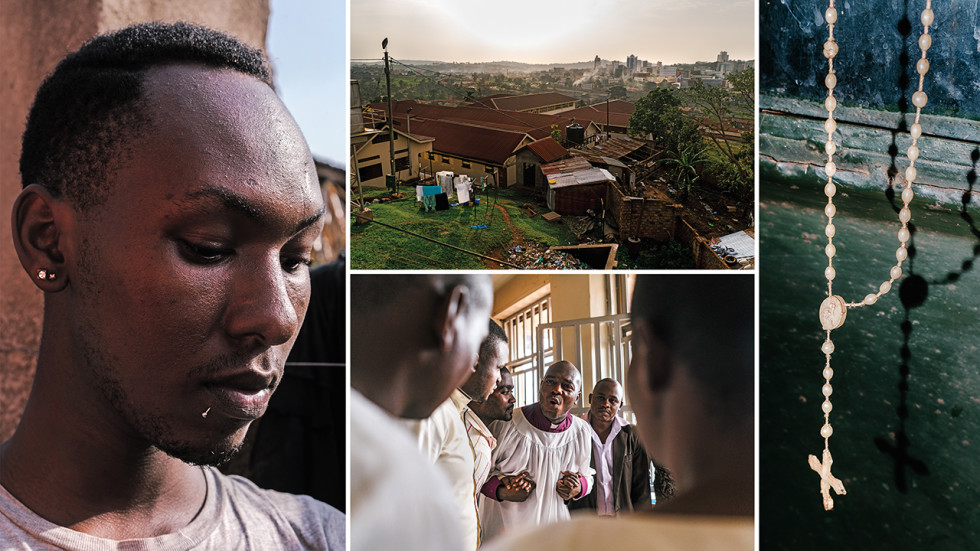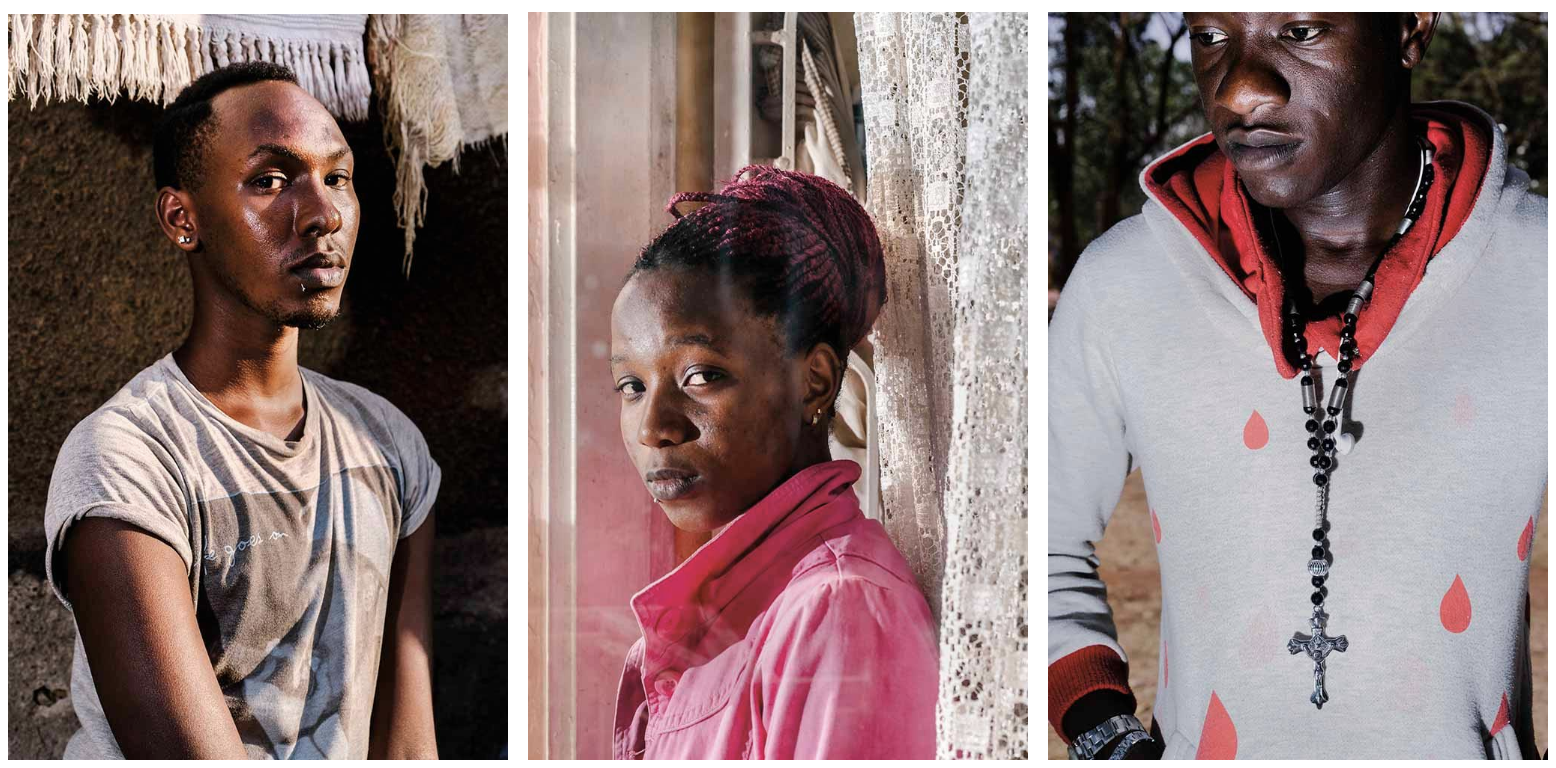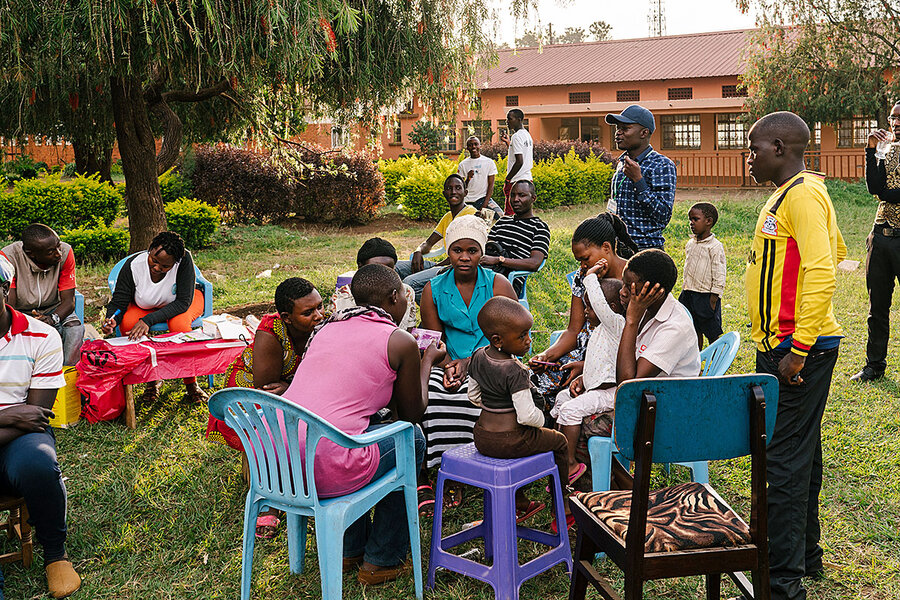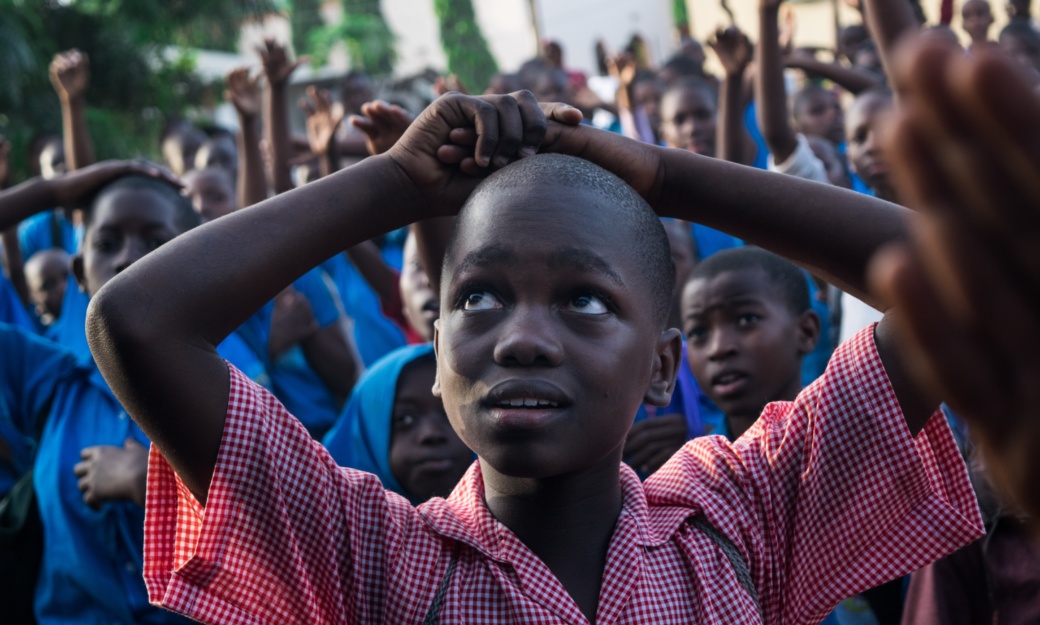American evangelicals’ antigay gospel forced him to flee Uganda. Then Christians in California offered him a home. A refugee’s story, in words and pictures.
Read: The Atavist
American evangelicals’ antigay gospel forced him to flee Uganda. Then Christians in California offered him a home. A refugee’s story, in words and pictures.
Read: The Atavist
After Uganda passed what became known as the “kill the gays” bill, hundreds of LGBT Ugandans began fleeing across the border to Kenya, where they lived in hiding while applying for asylum—but a few Kenyans, like Lucas, fled in the other direction.
Read: Harper’s Magazine
The plight of Kenya’s LGBT Refugees
“God has a book of life,” Mugisa told his worshipers. “He remembers your name. But to be written in this book you need to do good.” Mugisa turned to his congregants. “Mulondo, Lujja, Kasule, Nansamba: You want to be able to say, ‘God, I served you when I was in Kakuma camp.’ You want to be able to say, ‘I served you in Uganda. Remember me. This is what I have done, remember me.'”
Mugisa glanced around his congregation of LGBT worshipers, catching the eyes of a few of them. Unable to ignore the trepidation on their faces, he comforted them. “Trust me—one day we will be out of this place.”
Honorable Mention (runner-up), 2016 Immigration Journalism Award, The French-American Foundation; Official Nomination, “Outstanding Magazine Article,” 2017 GLAAD Media Awards; Shortlist, 2017 One World Media Print Award.
Read: VICE Magazine

Photos by Jake Naughton

Inside the Fight for a Queer Country
Just a few years ago, Kampala was a nightmare for LGBTQ Ugandans, some of whom were beaten and stripped in the streets, chased by angry mobs or jailed.
But you wouldn’t guess that from the relaxed atmosphere at Cayenne on Kampala’s north side. Few people seem to notice the transgender woman dancing by the pool, and if they do, they don’t seem to care. Javan belongs to a generation of queer Ugandans barely old enough to remember when the antigay fervor first erupted here, in 2009.
Read: Playboy
In Uganda, a lesbian activist helps straight people fight stigma of a disease once thought of as ‘gay.’
Read: The Guardian
THIS IS HOW THE HEART BEATS: LGBTQ EAST AFRICA
BY JAKE NAUGHTON AND JACOB KUSHNER
ORDER NOW: IndieBound / Amazon / Barnes&Noble
“This book is a celebration of diversity, of resilience, of love, of standing up to one’s oppressors, and overcoming. This is the LGBTQ community of Uganda. This is my community. This is our reality.” — activist Ruth Muganzi.
|
Same-sex relations are illegal in thirty-two African countries. Most, including Kenya and Uganda, were former British colonies, and the legacy of the colonialists’ anti-gay legislation can be felt to this day. This Is How the Heart Beats (The New Press, February 2020) by acclaimed photographer Jake Naughton and noted writer Jacob Kushner is a powerful and intimate series of portraits of LGBTQ Ugandans, Kenyans, and other East Africans. Some have decided to stay in their homeland despite the discrimination and abuse they face there. Others have fled as refugees, applying for resettlement to a part of the world where they will not be persecuted for who they love. In a world with more refugees than ever before, and at a time when prejudice toward refugees runs high across the globe, this work illuminates the stakes for one group at the center of it all. The book includes supporting texts by Jacob Kushner, a foreword by Ugandan queer activist Ruth Muganzi, and an essay by Cynthia Ndikumana, a transgender activist from Burundi. |

Book Details: The New Press, Paperback. ISBN: 978-1-62097-488-98 x 10, 152 pages. List Price: $21.99 (US). Media Contact: Andrea Smith / Andrea Smith Public Relations: +1 646-220-5950 Email: andreasmith202@gmail.com
ORDER NOW: IndieBound / Amazon / Barnes&Noble

Jake Naughton
A surprising turnaround for LGBT Africans in a most unlikely place
Since 2009, Uganda has made international headlines as one of the world’s most dangerous places to be gay or transgender. That year legislators and religious leaders first championed an anti-homosexuality bill to criminalize gay sex and marriages, even if they take place abroad, and obligate Ugandans to report them. “Aggravated homosexuality,” including repeated offenses, was to be punished with death – later amended to life in prison.
And yet, today many rural LGBT Ugandans are finding ways to fit into traditional family and community structures – and without always having to entirely hide their identities, either. Rural Ugandan towns might be the last place you’d expect to see LGBT acceptance. Cities are often assumed to be more tolerant, where strength in numbers allows people to advocate together.
But in places like Mbale, where neighbors all know one another, prejudice is often no match for personal relationships. By adapting to, rather than rebuking, traditions and societal norms, some rural LGBT Africans are achieving a level of tolerance that just a few years ago seemed unthinkable.
Read: The Christian Science Monitor


School children in Malindi, Kenya, February 2018. Photo by Ian Ingalula, Creative Commons.
Bridge International Academies was conceived in 2007 to be the McDonald’s of global education, promising to better educate poor students using Nooks and standardized curriculums for as little as $6 to $7 a month. Using tablets and standardized curriculums in each country, Bridge operates more than 520 schools, teaching some 100,000 students in Uganda, Kenya, Liberia, Nigeria and India. It’s currently expanding in Asia with dreams of reaching an ambitious 10 million students across the world by 2025.
But Some African parents may be uneasy about the idea of a western-conceived company disrupting something they hold so dear: control over their children’s education. Bridge threatens to globalize—or perhaps, to westernize—the sector on which many Africans bank their families’ futures.
Read the full story at Columbia Global Reports.
Turkey, which already straddles both Europe and Asia, is now making inroads into a third continent: Africa. East Africa is poised to become the new frontier market for Turkish construction, textiles and hospitality firms as they position themselves to become major stakeholders in the region’s rapidly growing industries.
Meanwhile, the Turkish government is forging ties with its African counterparts to negotiate tax agreements, regional security cooperation and foreign aid packages.
coach china
“The total value of projects undertaken by Turkish contractors in African countries exceeded $47bn dollars” in 2011, according to the most recent available figures from Turkey’s Ministry of Economy. At the same time, Turkey’s exports to Africa reached $13.3bn that year – a fivefold increase since 2003.
Read the full article as it appeared at The Financial Times‘ This is Africa publication.